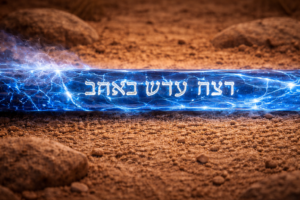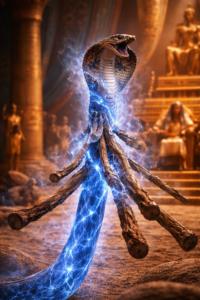The Ten Crowns of the Mishkan
The parsha begins with the dedication of the Mishkan, which took place on Sunday, Rosh Chodesh Nissan, 2449. Our Sages teach that on that day, there was a special blessing from HaShem. Just as the world’s Creation began on a Sunday, so too, the Mishkan’s dedication began on a Sunday, in order to show that the building of the Mishkan is equivalent to Creation.
The world was created with Ten Utterances (Sayings; Avot 5:1; see Rosh HaShanah 32a). The day of the dedication was therefore blessed with “ten crowns.” It was the first day of the week (Creation), the first day when kings are crowned, the first day the sacrifices by the tribes’ presidents were brought (Nachshon ben Avinadav), the first day when the Kohanim served, the first time the Divine Presence manifested, the first day when the blessings were bestowed upon the Jewish People, the first day of service in the Mishkan, the first day when private altars were forbidden, the first day that ritual slaughtering in the northern area of the Sanctuary/Mishkan was performed, and the first time the Heavenly Fire descended upon the Altar (BaMidbar Rabbah 13:6). These ten crowns parallel the Ten Utterances with which the world was created (Avot 5:1; see Rosh HaShanah 32a), as well as the Ten Commandments.
God could have created the world with only one utterance. Why use ten? The ARI has a discussion about this (Mevo Shearim II, 2:1-2), which Parparaot LeChokhmah also discusses at length (on Likutey Moharan II, 12, n.29). The upshot is that there are several levels, and Creation was made with Ten Utterances to teach us about the various efforts that people make when trying to reveal Godliness and draw close to Him. There are many levels in our efforts to attain spirituality. Each effort carries its own reward.
The same applies to misdeeds and wrongdoings. Each wrongful deed presents a punishment, to each according to their will and desire to commit that error or sin.
Thus, the concept of the Mishkan is not a random idea. It was designed to help us find HaShem and receive the reward bestowed upon us for doing so. However, if we erred (the golden calf), then the Mishkan provides a means for which we can rectify our misdeeds.
Thus, the dedication of the Mishkan commands a very important place in the creation and existence of the world. It signifies the purity of life as well as our ability to rectify our errors and move forward.
May HaShem grant us the wisdom of these ideas to improve our lives and better our situations, Amen.
Have a great Shabbos.
- 0 comment






















